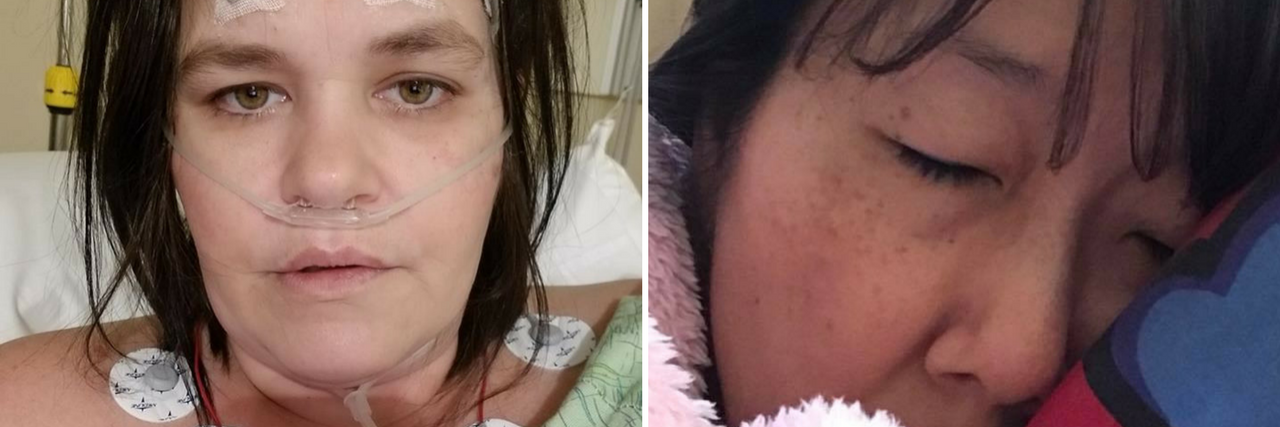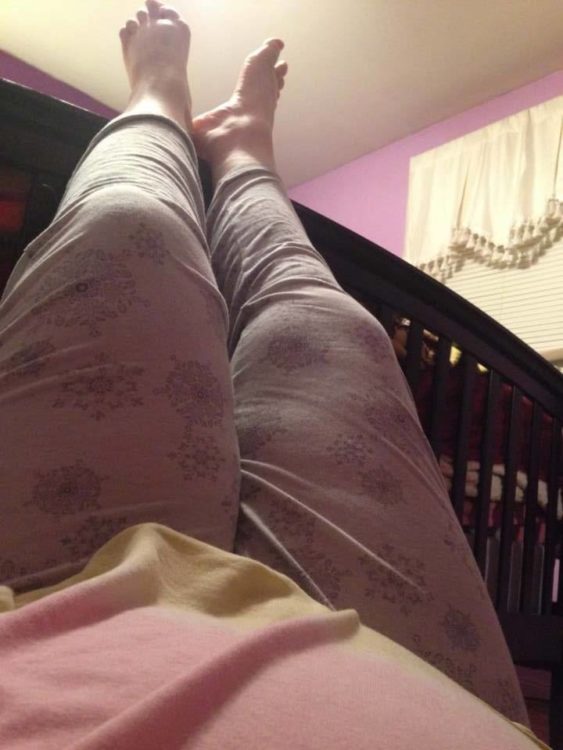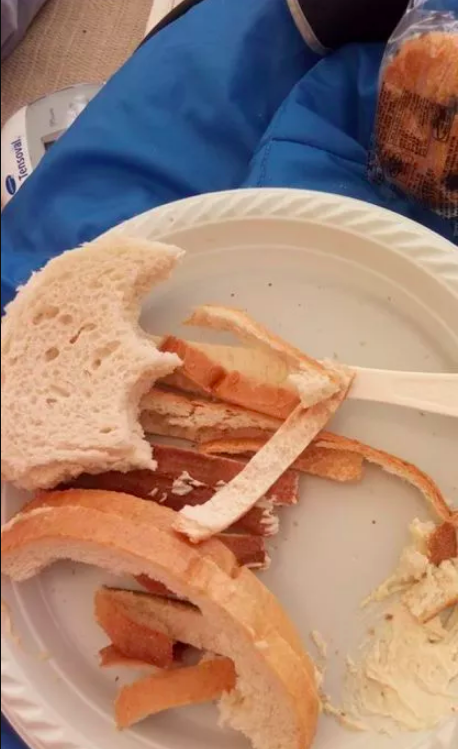14 Symptoms of Dysautonomia – as Shown in Photos
Editor's Note
Any medical information included is based on a personal experience. For questions or concerns regarding health, please consult a doctor or medical professional.
Although many people may experience similar symptoms, dysautonomia (an umbrella term for disorders of the autonomic nervous system) looks different for everyone. Whether you’re battling largely “invisible” symptoms, such as dizziness or fatigue, or something more apparent, like blood pooling or excessive sweating, these symptoms can often manifest in a variety of ways, depending on the individual, their unique health situation and the type of dysautonomia they have.
But even though dysautonomia symptoms can take on different forms, it is important to raise awareness of these manifestations so those with the condition can be better understood and have more productive conversations with loved ones, friends and doctors. So, we asked our Mighty community to share a photo depicting one of the symptoms they experience. (Remember, if you have any of these symptoms, confirm with a doctor that they are caused by dysautonomia and not a separate medical condition). Let’s shed some light on how complex and multifaceted dysautonomia can really be.
Here’s what our community shared with us:
1. Fatigue
“Severe fatigue. I’m lucky if I can shower and ‘put my face on’ before noon every day.” – Julie C.
“I scrolled through looking for a picture that summed up one symptom, but one thing that kept popping up is pictures of me in my bed taken by my kids. I try to have my sometimes daily naps before my kids get home. Sometimes I am just too tired to get out of the bed for the day.” – Emily D.
“Chronic fatigue/malaise. Sometimes it is so bad I can hardly hold my head up or keep my eyes open. No matter how much I sleep I still feel no more rested than I felt before I fell asleep.” – Hannah W.
2. Inability to Regulate Temperature
“Me wearing my cooling vest while sitting in front of a fan. This is only one of many measures to keep my temperature under control — otherwise I’ll have tachycardia, vomiting and a host of other symptoms.” – Shay M.
“When the thermal reader at the science museum visibly shows your body’s lack of temperature regulation.” – Darah M.
“Always being cold so I pile on blankets even in the summer.” – Allison L.
3. High/Low Blood Pressure
“Blood pressure drops, you pass out and hurt yourself as you fall. This time I broke my big toe while passing out in the shower.” – Melanie C.
“Getting IV fluid to help increase my very low blood pressure.” – Lidia M.
“I have hyper POTS and this is what happens when I flare. I am backwards as I have my lowest BP laying and my highest standing, because of this I have medical professionals trying to help make everything so much worse. There are many forms of dysautonomia.” – Susan D.
4. Orthostatic Intolerance (Needing to Sit or Lie Down)
“This is dysautonomia. This is not being able to try on clothes in a dressing room long enough without having to rest. This is thanking God for the little bench in the dressing room I’m in to rest on or else I may faint or lay on the floor without it. This is the invisible fight people don’t see behind closed doors. This is crying over something simple people take for granted. This is the reality.” – Kayla K.
“Orthostatic intolerance and having to get creative when your body won’t let you stand anymore.” – Jo C.
“Being excited at age 23 to get a disability parking pass! Because walking inside anywhere causes you to feel weird!” – Sheyenne L.
5. Fainting
“This is me having EEG monitoring inpatient at Vanderbilt. We go through some of the most exhausting medical testings known to the medical field. We are tough, when we faint it’s not like just passing out. We are warriors on the daily.” – KellyAnn P.
“IV fluids so I can get through the day without fainting!” – Brittney J.
6. Tachycardia (Rapid Heart Rate)
“This is after emptying the dishwasher. I have inappropriate sinus tachycardia (medical professionals can’t agree on whether it’s dysautonomia or completely cardiac).” – Shanise B.
“This is POTS for me. I can’t make it through a store without sitting – this time my pulse went up and my O2 down.” – Caitlynn D.
7. Blood Pooling
“My legs after a shower. My heart always pounds during and after. Hydrating with Pedialyte and water before and after really helps and I recover much faster. Before this, I was washing my hair in the sink.” – Ryn J.
“Compression stockings.” – Honesty L.
8. Hyperhidrosis (Excessive Sweating)
“I sweat 24/7/365. Doesn’t matter what the temperature is either. Just one of the more annoying symptoms I deal with every day.” – Laura K.
9. Dehydration
“Carrying a 40-oz. water bottle with me everywhere I go to combat chronic dehydration.” – Taylor M.
10. Dizziness
“Dizziness makes sitting up/moving difficult.” – Greta T.
11. Dropping Heart Rate
“Having heart rates all over the place and having to wear heart monitors, which leave awful sores and blisters!” – Julie S.
“Her heart rate dropping [to] 38, almost passing out because of being sick and her dog taking care of her.” – Kimberly S.
12. Exhaustion
“After a long day of going in and out of consciousness, my body was extremely exhausted and ready to give up.” – Destiny M.
13. Needing to Elevate Your Feet
“Always having to stop and put my feet up because of POTS, even if I look unprofessional.” – Taylor M.
“It’s 3 a.m. and I cannot sleep due to insomnia. I had just fainted trying to leave my room to go get a salty snack and a Gatorade because my blood pressure was quite low. I elevated my legs to help bring my blood back to my heart and brain since it pooled in my legs before I lost consciousness. My heart is beating fast and feels like it’s going to explode.” – Hannah W.
14. Nausea/Vomiting
“This is me on what started off as a good day until my vitals got too out of wack and I ended up puking all over my carpet and then having to go get fluids because it’s the only thing that helps during bad flares. Nobody knows the reality of what my dysautonomia puts me through but I’m trying to become a bit more open.” – Lyssa A.
“I was in the middle of nowhere at camp and I got one of the dysautonomic events. I started vomiting. This is what I ate all day – a hummus sandwich and electrolyte water – while everyone else enjoyed juice and normal water.” – Debora B.





























